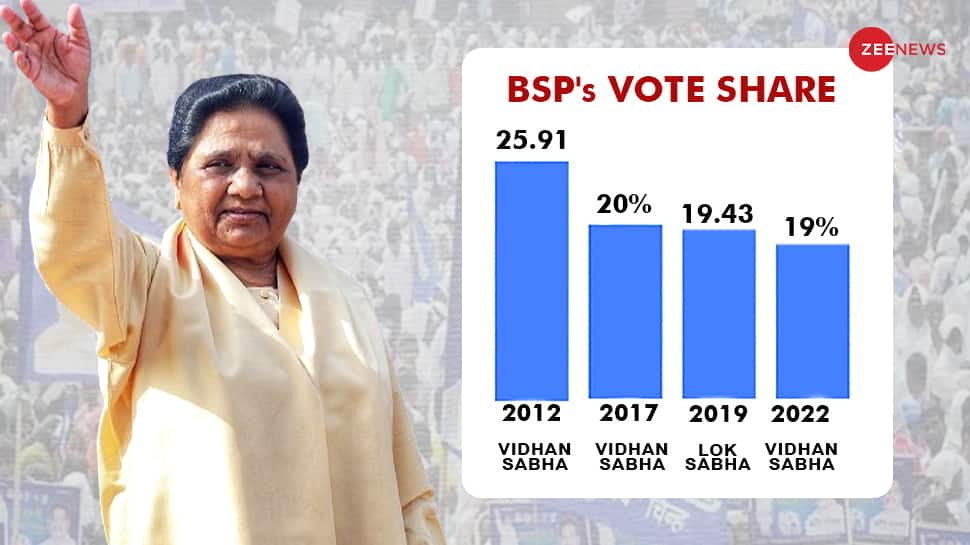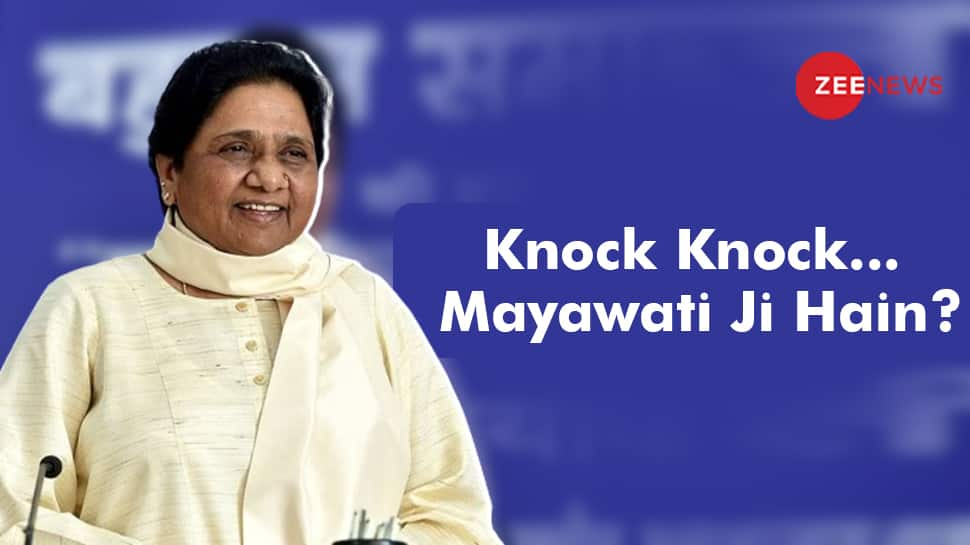"Tu hai ki nahi?" A popular song from a Bollywood movie flickers in my mind whenever I think of Mayawati—a stalwart Dalit leader who gave hope to millions of downtrodden people in India, but now seems disinterested and disenchanted with electoral politics, for no visible reason. This election, for instance, she ended her campaign a week before the final phase. This included the cancellation of scheduled rallies and programs. Some party members gave an unsettling explanation that "the campaign has been done wherever the party was hopeful of winning elections."
But why has this happened?
Data from past assembly elections shows that Mayawati's loyal vote bank in her home state of Uttar Pradesh hasn't shrunk much. Her loyal vote bank is still there and quite intact (refer to the graphic below).

The BSP supremo, now in a non-valiant mode, was once a leader who reacted to each and every political development. Her reactions, unlike her counterparts, were more action than words.
However, it's pretty evident now that she is running the party on auto-pilot mode.
But is this inactivity linked with age and health? Or are there are reasons beyond?
The BSP supremo recently installed her nephew, Akash Anand, as her successor, only to sack him a week later. Anand, some said, gave hope to the party with initial photo-ops and initiatives (that never took off). Mayawati, a week later, removed him, stating that he needs to attain more "maturity"—delivering a shocker to the political circles. Did Mayawati do this under some pressure from the BJP? Congress and Samajwadi Party have said so.
While Mayawati removed Akash, she gave the powers back to Anand Kumar, the former's father.
The BJP leaders, in reaction, said that this was BSP's internal matter.
No Campaign, No Agenda
BSP slogans like "Tilak, Trishul aur Talwaar... and Hathi Nahi Ganesh, Brahma Vishnu Mahesh hain," used to create ripples in the electoral scenes for decades, ever since the party was founded by Kanshi Ram.
For the past three elections, there hasn't been a popular slogan. People, even in Mayawati's bastions of Ghaziabad and Noida, have not seen local units campaigning on a large scale. In some pockets, many don't even know the name of the candidates this time.
No Attempts to Pick Up Modern-Day Campaigning
Surprisingly, the BSP is the only 'big party' in the fray without any specific social media strategy in place. The party, which gets around 20 percent of votes in a state like Uttar Pradesh, only has 84,000 Twitter followers and 1 lakh on Facebook.
Its last Twitter post came on May 2, a month ago, while the elections were still on. The last post on Facebook was on May 20. Both handles are not even verified.
The party has negligible or zero presence on platforms like Instagram and WhatsApp.
No Advertisement Campaign on TV
Unlike past years, the BSP was nowhere to be seen on television ads, and the party didn't pay for advertisements in large newspapers.
Many may argue that this is not the first time that a party is diminishing. There have been many examples of national or even state-level parties being decimated to a few seats.
But the case is not so simple with BSP. The BSP's loyal vote bank, many say, will still vote for BSP. The seat share of the party has diminished, but the vote share is intact. This means that Dalits still come out to punch the Elephant on the EVMs, yet, the seats are not won as the party isn't working on the much-required caste arithmetic at all.
The facts and figures clearly suggest—BSP is not dead. However, its leadership's intent to win elections is surely nowhere to be seen.
















